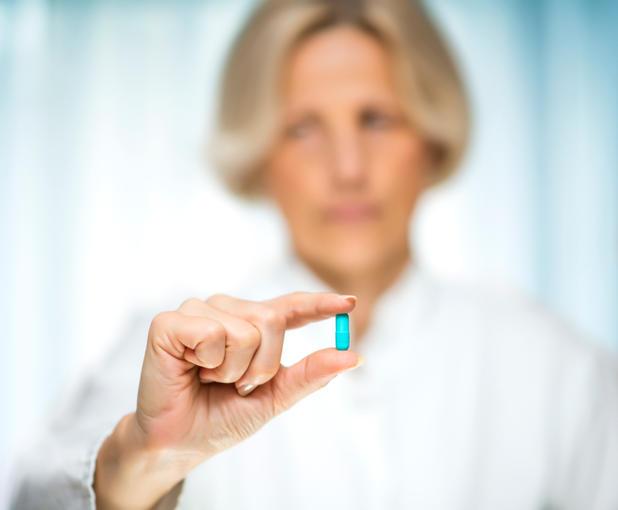Future Probiotic Pill May Be Able to Treat and Possibly Cure Diabetes

Diabetes is a complicated disease affecting 29.1 million Americans, according to the American Diabetes Association. The ADA also reports that 8.1 million people are living with the disease but are undiagnosed, and another 86 million have been diagnosed with pre-diabetes. Diabetes can lead to a host of complications, including cardiovascular disease, blindness and kidney disease. Although many people with diabetes are able to maintain their quality of life and control their symptoms through diet, exercise and medication, researchers from Cornell University believe they may have found a new treatment that could lead to curing type 1 and type 2 diabetes.
Cornell University scientists manufactured a strain of the probiotic lactobacillus, a type of bacterium naturally found in the digestive, urinary and genital tracts of humans. The purpose was to use the engineered probiotic to trigger a protein-like molecule, known as a peptide, which has the same qualities as glucagon -- a hormone produced in the pancreas that partners with insulin to help regulate blood sugar levels.
After administering the lab-created probiotic to diabetic rats for 90 days, researchers reported:
- Diabetic rats had up to a 30 percent drop in elevated blood sugar levels.
- The cells lining small intestine converted into cells that behaved similarly to the beta cells of the pancreas. These cells produce and secrete insulin to control blood sugar levels. Beta cells do not function properly in people with diabetes.
- The manufactured probiotic would shift the responsibility of blood sugar control from the pancreas to the small intestine.
Based on these results, a biopharmaceutical company is working to create a pill form of this probiotic to be taken daily to help people with diabetes regulate their blood sugar. According to Diabetic Connect, Cornell investigators plan to continue their work to test higher doses of the probiotic to see if it can be used to cure, not just treat, diabetes.
Because the manufactured probiotic pill differs from the probiotic products currently available, consuming foods like yogurt, soft cheeses and sourdough bread will not help manage diabetes. Therefore, until the probiotic pill is obtainable through prescription, consider the following tips to prevent and/or control diabetes and some of its complications.
- If you have been diagnosed with pre-diabetes or diabetes, follow your prescribed treatment plan, and wear an emergency tag or bracelet.
- If you have diabetes, pre-diabetes or are at high risk, visit your MDVIP-affiliated physician and related specialists regularly.
- Manage your weight. Extra pounds often reduce the sensitivity muscle and fat tissue has to insulin. This is referred to as insulin resistance and it is the most common trigger of type 2 diabetes because it causes the body to require an increasing amount of insulin to control blood sugar.
- Exercise regularly. Physical activity’s obvious contribution is that it helps manage weight. However, working muscles also burn stored blood sugar and respond better to insulin.
- Control stress. Cortisol is a stress hormone that typically hits its highpoint in the morning and slowly decreases during the day. By the evening, cortisol levels are supposed to be low. However, when stressed, more cortisol is released so the body is prepared to handle stress, which is referred to as the “fight or flight” syndrome. The additional cortisol releases sugar into the bloodstream to supply muscles with more energy, which can ultimately lead to increased blood sugar levels.
- If you smoke, work with your MDVIP-affiliated doctor to help you quit. Some experts believe that nicotine raises blood sugar levels in smokers with diabetes.
- Regarding alcohol, if you have diabetes, pre-diabetes or are at high risk for diabetes, consider the following
- Limiting your alcohol intake to one drink per day for women and two drinks per day for men can help regulate blood sugar levels.
- Drinking alcohol with meals, as this can help control blood sugar levels, as food can delay the absorption of alcohol.
- Take care of your feet by washing and moisturizing them daily may help protect the skin from cracking and becoming infected. Consult your MDVIP-affiliated doctor if you notice sores and blisters that do not heal.
If you have diabetes, pre-diabetes or are at high-risk for developing it, be sure to have a discussion with your MDVIP-affiliated physician. He or she is your best resource to help you manage your blood sugar levels. Further, the unique relationship you share with your MDVIP-affiliated doctor makes it easier to recommend the most effective course of action to help prevent and/control potential complications. Don’t have an MDVIP-affiliated physician? Find one near you by clicking here.


